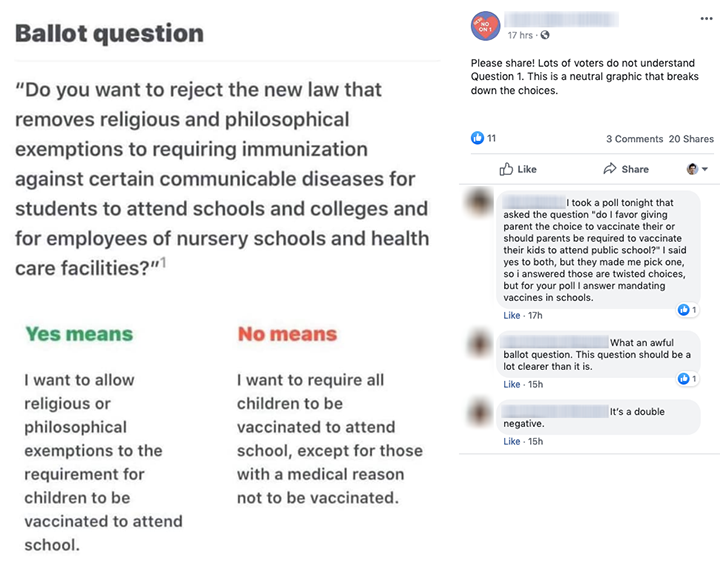Your civic tech work matters
A little over a year ago, enduring the longest government shutdown in U.S. history, I helped my friend and colleague Shannon McHarg migrate her voter information site to open source. (We discussed the process last July on the Civic Tech Chat podcast.)
The site is now part of Open Maine, a Code for America brigade comprised of volunteers working to promote civic involvement and solve problems in their community.
Motivated by Shannon’s commitment to civic engagement and her desire to help others better understand the meaning and implications of Maine’s ballot questions, Maine Ballot is proof that the product of one individual’s civic initiative can become a crucial resource for a community.
“This question should be a lot clearer.”
Maine’s March 2020 statewide ballot had a single question:
Do you want to reject the new law that removes religious and philosophical exemptions to requiring immunization against certain communicable diseases for students to attend schools and colleges and for employees of nursery schools and health care facilities?
I suspect there are more confusing ways to phrase this ballot question, but none come readily to mind.
Of course, there’s plenty of misinformation and confusion about vaccinations in general, and the wording of the ballot question only added to the muddle.
Mainers noticed the ambiguity inherent in the question, and turned to (among other sources) Maine Ballot.
As with all statewide ballot questions, the Open Maine team had written descriptions for the results of a yes vote and no vote:
| Yes means | No means |
|---|---|
| I want to allow religious or philosophical exemptions to the requirement for children to be vaccinated to attend school. | I want to require all children to be vaccinated to attend school, except for those with a medical reason not to be vaccinated. |
Ahead of the election, these descriptions began to show up on social media, as voters attempted to make sense of this awkwardly worded ballot question.

By clarifying in plain language the results of voters’ choices, and providing more resources and context, Maine Ballot is demonstrating the value of volunteer-led civic initiatives.
Update (6/26/20): Em Burnett of Open Maine wrote an excellent blog post about Maine Ballot and this ballot question.
Your civic tech work matters
As I write this, everything is difficult. A global pandemic, systemic racism, crippling inequality, and climate change seem too overwhelming to possibly overcome.
Our social and environmental challenges have, for me at least, occasionally resulted in a debilitating pessimism and a sense that our work isn’t sufficient to the scale of the problems we face. Sometimes it feels insurmountable.
But small victories matter. Knowing that people are volunteering their time and effort to improve the health of our democracy is inspiring, and while we can’t always measure the impact, evidence that our work matters is all around us.
Your civic tech work matters. Your commitment to doing what you can matters. We can’t do it all, but we must do something.